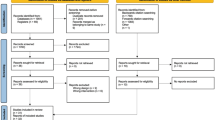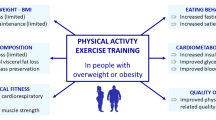Abstract
The purpose of the study was to determine the impact of two worksite cardiovascular nutrition education programs. Program 1 focused on information related to the skills needed to change dietary behaviours (1 session, 45 minutes). Program 2 focused on information related to skills as well as cardiovascular risk factors (1 session, 60 minutes). The study sample consisted of office employees at three worksites. The pretest consisted of questions pertaining to: frequency of consumption of high fat foods, knowledge related to the risk and skills components of the program, and self-report of family and personal history of cardiovascular disease. Of employees who completed the pretest, 67% (55/82) in Program 1, 88% (46/52) in Program 2, and 86% (30/35) in the control group completed the post-test (six weeks after the programs). The results of regression analysis indicated that participants of Program 1 (skills only) reduced their frequency of consumption of high fat foods (p<0.01); no other variables were significant. Nutrition education programs for the prevention of cardiovascular disease should focus on information related to skills when limited time is available.
Résumé
L’objectif de cette étude était de déterminer l’impact de deux programmes d’éducation nutritionnelle en santé cardio-vasculaire dispensés en milieu de travail. Le programme 1 contenait des informations sur les habiletés nécessaires au changement de comportements alimentaires (1 séance, 45 minutes). Le programme 2 contenait des informations sur les habiletés et sur les facteurs de risque cardio-vasculaires (1 séance, 60 minutes). L’échantillon était constitué d’employé(e)s de bureau dans trois milieux de travail. Au pré-test, le questionnaire a porté sur la fréquence de consommation d’aliments riches en graisses, les connaissances reliées aux facteurs de risque et habiletés faisant l’objet du programme, et sur les antécédents personnels et familiaux de maladies cardio-vasculaires. Parmi les employés ayant complété le pré-test, 67 % (55/82) pour le programme 1, 88 % (46/52) pour le programme 2, et 86 % (30/35) pour le groupe-témoin ont complété le post-test (six semaines après les programmes). Les résultats de l’analyse de régression indiquent que les participants au programme 1 (habiletés seulement) ont réduit leur fréquence de consommation d’aliments riches en graisses (p < 0,01); aucune autre variable n’était significative. Un programme d’éducation nutritionnelle pour la prévention des maladies cardio-vasculaires devrait se concentrer sur la transmission d’informations sur les habiletés lorsque le temps disponible est limité.
Similar content being viewed by others
References
Frank E, Winkleby M, Fortmann SP, Farquhar JW. Cardiovascular disease risk factors: Improvements in knowledge and behavior in the 1980s. Am J Public Health 1993;83:590–93.
Shatenstein B, Gagnon G. Predictors of saturated fat intake. J Can Diet Assoc 1992;53:274–80.
Kristal AR, Bowen DJ, Curry SJ, et al. Nutrition knowledge attitudes and perceived norms as correlates of selecting low-fat diets. Health Educ Res 1990;5:467–77.
Charny M, Lewis PA. Does health knowledge affect eating habits? Health Educ J 1987;46:172–76.
Shepherd R, Stockley L. Nutrition knowledge attitudes and fat consumption. J Am Diet Assoc 1987;87:615–19.
Axelson ML, Brinberg D. The measurement and conceptualisation of nutrition knowledge. J Nutr Educ 1992;24:239–46.
Contento I, Balch GI, Bronner YL, et al. Theoretical frameworks or models for nutrition education. J Nutr Educ 1996;27:287–90.
Levy AS, Fein SB, Stephenson M. Nutrition knowledge levels about dietary fats and cholesterol: 1983–1988. J Nutr Educ 1993;25:60–66.
Beggs L, Hendricks S, Schwartz NE, Biro K. Tracking nutrition trends: Canadians’ attitudes, knowledge and behaviours regarding fat, fibre and cholesterol. J Can Diet Assoc 1993;54:21–25.
Reid DJ, Conrad SA, Hendricks SM. Tracking nutrition trends, 1989–1994: An update on Canadians’ attitude, knowledge and reported actions. Can J Public Health 1996;87:113–18.
Mela D. Consumer estimates of the percentage energy from fat in common foods. Eur J Clin Nutr 1993;47:735–40.
Avis NE, McKinlay JB, Smith KW. Is cardiovascular risk factor knowledge sufficient to influence behavior? Am J Prev Med 1990;6:137–44.
Santé Québec. Faits saillants de l’enquête québécoise sur la santé cardio-vasculaire. Québec: Ministère de la Santé et des Services sociaux, 1990.
Rosenstock IM. The health belief model: Explaining health behaviour through expectancies. In: Glanz K, Lewis FM, Rimer BK (Eds.), Health Behavior and Health Education: Theory, Research and Practice. San Francisco: Jossey-Bass, 1990;39–62.
Lau RR. Beliefs about control and health behavior. In: Gochman DS (Ed.), Health Behavior. San Francisco, Jossey-Bass, 1988;43–63.
Perry C, Baranowski T, Parcel GS. How individuals, environments, and health behaviour interact: Social learning theory. In: Glanz K, Lewis FM, Rimer BK (Eds.), Health Behavior and Health Education: Theory Research and Practice. San Francisco: Jossey-Bass, 1990;161–86.
Bandura A. Social Foundations of Thought and Action: A Social Cognitive Theory. Englewood Cliffs, NJ: Prentice-Hall, 1986.
Borg WR, Gall MD. Educational Research, 4th edition. New York: Longman, 1983.
Health and Welfare Canada. Promoting Healthy Weights: A Discussion Paper. Ottawa: Minister of Supply and Services Canada, Cat. No.H39-131, 1988.
Moisan J, Potvin L, Philibert L, Strychar I. Validation of a Food Frequency Questionnaire for Assessing Dietary Fat Intake. 3rd International Conference on Preventive Cardiology, Oslo, Norway, June 27–July 1, 1993.
Ammerman AS, Haines PS, DeVellis RF, et al. A brief dietary assessment to guide cholesterol reduction in low-income individuals: Design and validation. J Am Diet Assoc 1991;91:1385–90.
SPSS Statistical Data Analysis. SPSS/PC+4.0 Base Manual for the IBM PC/XT/AT and PS/2. Chicago: SPSS Inc., 1990.
Reid D, Hendricks S. Consumer understanding and use of fat and cholesterol information on food labels. Can J Public Health 1994;85:334–37.
Author information
Authors and Affiliations
Additional information
This research was funded by the Fonds pour la formation de chercheurs et l’aide à la recherche (FCAR) and Fonds de la recherche en santé du Québec (FRSQ). This report is based upon the Master’s thesis of Linda Azancot conducted under the supervision of Drs. Strychar and Rivard at the Université de Montréal. Linda Azancot received scholarships from FCAR and the Medical Research Council of Canada. Dr. Strychar is a research scholar of the FRSQ.
Rights and permissions
About this article
Cite this article
Azancot, L., Strychar, I.M. & Rivard, M. Impact of Two Cardiovascular Disease Reduction Education Programs Varying in the Type of Nutrition Information Provided. Can J Public Health 88, 354–357 (1997). https://doi.org/10.1007/BF03403905
Received:
Accepted:
Published:
Issue Date:
DOI: https://doi.org/10.1007/BF03403905




